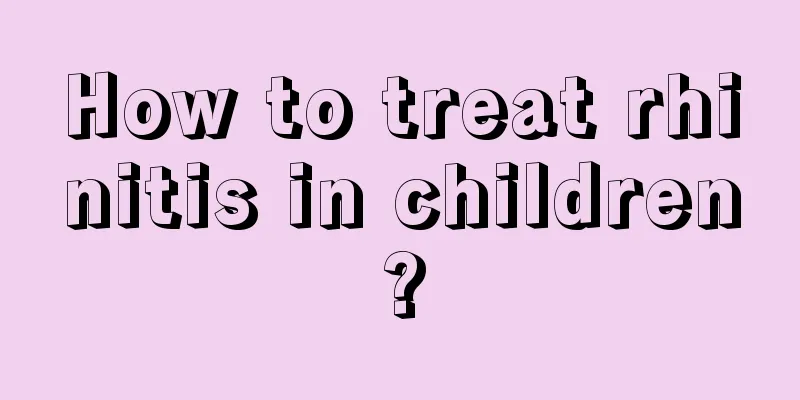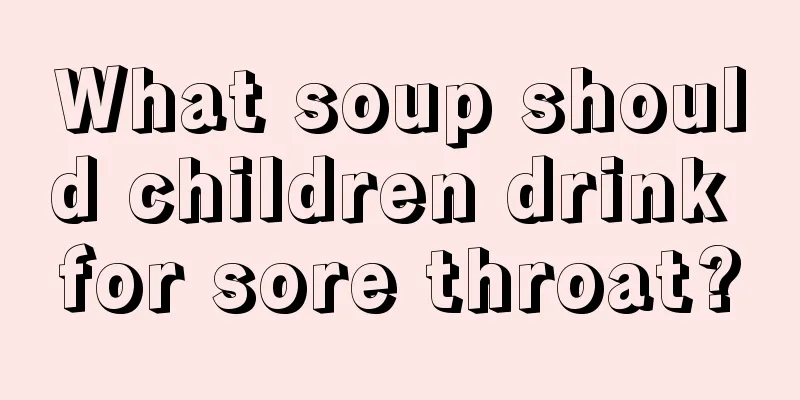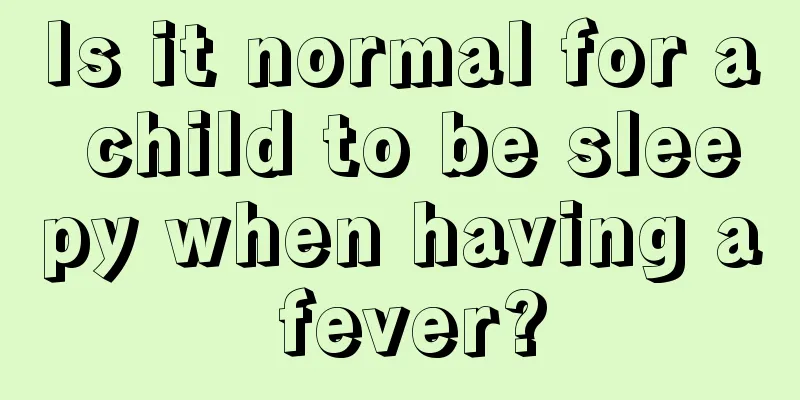How to treat rhinitis in children?

|
Children are also susceptible to rhinitis problems, so how to effectively treat and improve it is an issue that cannot be ignored. You can use nasal drops or use saline to clean the nasal vestibule. And be sure to remind your children to prevent colds. 1. Mainly treat the primary cause of rhinitis. Different medications are used for different types of rhinitis. Allergic rhinitis requires anti-allergic treatment, such as astemizole, chlorpheniramine, etc. 2. Nasal drops are generally used to relieve the symptoms of rhinitis. Nasal oil can relieve the dryness of dry rhinitis, furosemide can relieve nasal congestion, and hormone nasal drops can help relieve symptoms of allergic rhinitis such as sneezing and runny nose. 3. Colds are usually accompanied by sore throat, cough, etc. In severe cases, there may also be fever, headache, body aches and even nausea and diarrhea. The typical symptoms of rhinitis are paroxysmal sneezing, runny nose, itchy nose and nasal congestion. Parents should pay attention to their children’s symptoms; 4. Try washing your child with salt water, use normal saline. Nasal irrigation with saline must be done in two steps. You must first rinse the nasal vestibule separately, and then rinse the deep nasal cavity after rinsing the nasal vestibule; 5. Precautions for patients with acute rhinitis: 1. Drink plenty of water. 2. Indoor ventilation. 3. When you have a fever, you should get adequate rest and keep warm. 4. Wear a mask when going out. 5. The diet should be light and easy to digest. 6. Do not use diaphoretic drugs excessively. 7. Chinese medicine should be decocted lightly and taken frequently. 8. Avoid cold drinks or eating raw, cold, sour or astringent foods after taking the medicine. 6. Precautions for patients with chronic rhinitis: 1. Pay attention to physical exercise and participate in appropriate sports activities. 2. Wash your face with cold water every morning to enhance the disease resistance of the nasal mucosa. 3. Pay attention to improving the working environment. 4. Pay attention to climate changes and add or remove clothes in time. 5. Do not blow your nose forcefully when you have a stuffy nose. 6. Don’t pick your nose with your hands. 7. Always keep a good mood. 8. Keep bowel movements smooth. |
<<: What are the symptoms of convulsions?
>>: Why does my child’s nose itch?
Recommend
What should I do if my child’s tonsils are red and swollen?
When children have a cold and cough, their tonsil...
Causes of indigestion in babies
When a baby is just born, its body systems are st...
How often should newborn bottles be sterilized?
We all know that most newborns drink milk powder ...
Baby wakes up once an hour at night
Some babies are particularly easy to wake up when...
10 safety precautions for children when traveling by car
1. It is strictly forbidden to place children in ...
What to do if a four-month-old baby has diarrhea
We also know that newborns are generally weak, so...
What to do if your five-year-old baby has diarrhea
A five-year-old baby has diarrhea, which is a com...
Can stimulating the pituitary gland make you taller?
There is a rumor circulating quietly among some p...
Symptoms of aversion to milk in four-month-old baby
Nowadays, many babies have a good appetite for br...
How long should a three-month-old baby sleep a day?
It seems that babies spend most of their time sle...
Mild brain injury in newborns
Brain damage in newborns can cause great harm, an...
What should I do if my baby has indigestion and diarrhea after eating milk powder?
Children's gastrointestinal digestive functio...
Children's sinusitis anti-inflammatory medicine for one month
Many people believe that surgery is necessary aft...
What are the dietary principles for children with tics?
Tourette syndrome is a relatively common disease,...
What to do if your child has a hunchback?
We all say that knowledge changes destiny, and bo...









